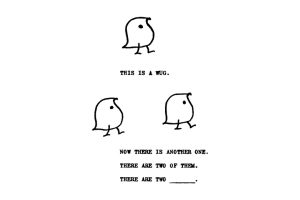
How does the brain process language—even when it’s made up? Sofia Rest, a third-year undergraduate majoring in computer science, has been awarded a Provost’s Undergraduate Research Award to find out.
“I’ve always been endlessly intrigued by the human brain and how it efficiently represents and produces language,” says Rest.
Under the guidance of her research mentor, Colin Wilson—a professor of cognitive science who serves as the director of undergraduate studies for the Krieger School’s Department of Cognitive Science—and doctoral candidate Jane Li, Rest is studying differences in cognitive processing costs between adults and children when they’re asked to pluralize nonwords—a task called the “wug test”—in a timed experiment.
“Our study will fill an important gap in the current morphological literature,” says Rest. “Our research contributes to a broader understanding of cognitive processes in linguistics, and could influence theories in language acquisition, processing, and production.”

Sofia Rest
Rest is advised by Scott Smith, a professor of computer science and the director of graduate studies for the Department of Computer Science. Rest’s other research interests include language modeling, natural language processing, and automatic speech recognition.
“I’m particularly fascinated by modeling problems in NLP and how we can apply existing knowledge of phonology and syntax to define these elusive computational models of human language,” she says.
Provost Joseph Cooper established the PURA program in 1993 with an endowment by the Hodson Trust to support and encourage Hopkins undergraduate students to engage in independent research, scholarly, and creative projects.